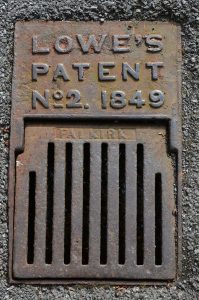Tech industry professionals use “intellectual property” to describe two different creatures. They also use “IP lawyer” for a broad list of professionals with little in common. Few recognize the many meanings of “intellectual property”, so the term creates a lot of confusion — and screws up lots of contracts and other legal work.
 Two Contradictory Meanings of “IP”
Two Contradictory Meanings of “IP”
Here are the two typical meanings of “intellectual property”:
- Knowledge about technology; expertise; confidential information. This definition is so widely used that it’s hard to call “wrong” … but it is. At least, it’s a misleading colloquial use that can get you in trouble.
- Inventions, artistic works, business names, and other intangible assets protected by law; creations of the mind subject to legal monopolies under patent, copyright, trademark, or trade secret law. This is a wordy, lawyery definition, but it’s right — and it won’t get you into trouble.
The problem is that many professionals don’t realize the two definitions are separate, so they blend them in their minds — and their contracts. They think their company’s knowledge is IP (per definition 1), so they assume IP law protects that knowledge (per definition 2). As a result, their contracts say things like, “Customer agrees that TechCo’s methods for developing the software and providing the solution are TechCo’s intellectual property, protected by applicable law.” Unfortunately, that sentence may provide no protection at all. That’s because IP law does not protect knowledge or expertise or confidential information — and saying it does in a contract won’t change it. If you want to protect the “methods” mentioned in the sentence above, you need an NDA or some other contract term saying what the customer can and can’t do with those methods.
Intellectual property law protects four categories of assets in most countries. (Some would quibble with the list of four, adding small additional categories like “mask works,” a hybrid of copyright. But the four below are pretty complete.)
 Patent: inventions that have been granted a patent.
Patent: inventions that have been granted a patent.- Copyright: text (e.g., software, novels), images, music, sculpture, and other works of authorship that are recorded (“fixed”) on paper, on a disc, in stone, etc.
- Trademark: names and logos used in commerce.
- Trade Secret: confidential business information that isn’t generally known, gives its holder a competitive advantage because it’s not generally known, and is subject to reasonable efforts to preserve secrecy.
The closest IP law comes to protecting knowledge and confidential information is trade secrets law. But as you can see above, not all knowledge or confidential information will qualify as a trade secret.
At Silicon Valley receptions, it’s fine to discuss “intellectual property” using definition 1. But don’t let it creep into your thinking when you draft contracts. In a contract, keep definition 2 firmly in mind.
Many Meanings of “IP Lawyer”
 Many companies retain an intellectual property lawyer only to find that he or she knows very little about their needs. Or worse, they retain the lawyer and don’t realize he/she lacks the necessary expertise. (The same goes for IP expert witnesses.) That’s because “intellectual property law” covers a long list of barely-related fields. “IP Lawyers” include patent prosecutors, patent licensors, patent litigators, trademark lawyers, copyright litigators, entertainment contracts lawyers, IT contracts lawyers, and more. Some lawyers practice in more than one of these fields, but I doubt that anyone covers them all.
Many companies retain an intellectual property lawyer only to find that he or she knows very little about their needs. Or worse, they retain the lawyer and don’t realize he/she lacks the necessary expertise. (The same goes for IP expert witnesses.) That’s because “intellectual property law” covers a long list of barely-related fields. “IP Lawyers” include patent prosecutors, patent licensors, patent litigators, trademark lawyers, copyright litigators, entertainment contracts lawyers, IT contracts lawyers, and more. Some lawyers practice in more than one of these fields, but I doubt that anyone covers them all.
Ask your would-be lawyer what type of IP work he or she has done. And keep in mind that lawyers in our field — tech contracts, the subject of this website — may not even focus on “intellectual property” in describing their work. IP plays a role in what we do, but it’s not always a big role. Tech contracts lawyers specialize just as much or more on commercial contracts law, as it relates to software and other information technology.
Want to do tech contracts better, faster, and with more confidence? Check out our training offerings here: https://www.techcontracts.com/training/. Tech Contracts Academy has options to fit every need and schedule: Comprehensive Tech Contracts Master Classes™ (four on-line classes, two hours each), topical webinars (typically about an hour), customized in-house training (for just your team). David Tollen is the founder of Tech Contracts Academy and our primary trainer. An attorney and also the founder of Sycamore Legal, P.C., a boutique IT, IP, and privacy law firm in the San Francisco Bay Area, he also serves as an expert witness in litigation about software licenses, cloud computing agreements, and other IT contracts.
And, consider also the 3rd edition of David Tollen’s best-seller, The Tech Contracts Handbook, available to order (and review) from Amazon here, or purchase directly from its publisher, the American Bar Association, here.
© 2018, 2022 by Tech Contracts Academy, LLC. All rights reserved.
Thank you to Pixabay.com for great, free stock photos!

 Two Contradictory Meanings of “IP”
Two Contradictory Meanings of “IP”